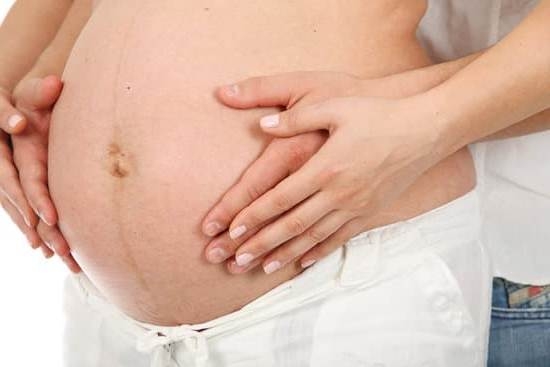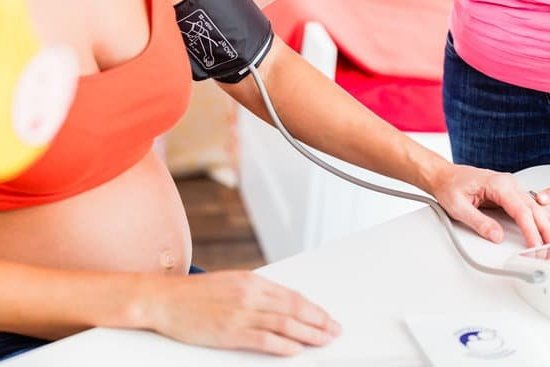Pregnancy is an incredibly transformative experience, and for many women, the onset of pregnancy symptoms marks the beginning of that journey. Understanding when these symptoms can occur is crucial for early detection and preparation. From nausea and fatigue to breast tenderness, recognizing the signs of early pregnancy can be both exciting and daunting. In this article, we will explore the various aspects of early pregnancy symptoms, including their onset, common signs, and factors that can influence them.
Early pregnancy symptoms are the bodily changes that a woman may experience in the first few weeks after conception. These symptoms play a vital role in alerting women to the possibility of being pregnant. But how early can you have pregnancy symptoms? It’s a question many women ask themselves as they navigate the uncertain waters of potential motherhood.
During the first section of this article, we’ll delve into these questions and provide insights into what early pregnancy symptoms entail. Additionally, it’s crucial to understand how these symptoms vary from woman to woman and what factors can influence their onset. By gaining a comprehensive understanding of these early signs, individuals can better prepare for potential changes in their bodies as they navigate this pivotal stage in life.
Understanding Early Pregnancy Symptoms
Overview of Common Early Pregnancy Symptoms
Early pregnancy symptoms can vary from woman to woman, but there are several common signs that many women experience. Nausea, fatigue, and breast tenderness are among the most frequently reported early symptoms of pregnancy. These symptoms can start as early as one week after conception and may continue throughout the first trimester. Many women also report increased urination, food aversions or cravings, and mood swings during early pregnancy.
Hormonal Influence on Symptoms
The hormonal changes that occur in a woman’s body during pregnancy play a significant role in the development of early pregnancy symptoms. The rapid increase in levels of estrogen and progesterone can lead to nausea and breast tenderness, while the surge in human chorionic gonadotropin (hCG) is responsible for triggering positive pregnancy test results. These hormonal fluctuations can also cause fatigue and changes in appetite.
Variation of Symptoms
It’s important to note that not all women will experience the same early pregnancy symptoms, or they may experience them to varying degrees. Some women may have no symptoms at all during the first few weeks of pregnancy, while others may have multiple noticeable signs.
Factors such as individual hormone levels, overall health, and genetics can contribute to this variation. As a result, it’s essential for individuals to pay attention to their own bodies and be aware of potential early pregnancy symptoms.
Overall, understanding early pregnancy symptoms is crucial for anyone who suspects they may be pregnant. By recognizing these signs and knowing when they typically occur, individuals can seek appropriate medical guidance and prenatal care if needed.
How Early Can You Have Pregnancy Symptoms
When it comes to pregnancy, one of the most common questions many women have is “how early can you have pregnancy symptoms?” Understanding the timing of pregnancy symptoms is important for individuals who are trying to conceive, as well as those who may be concerned about a potential unplanned pregnancy. The onset of early pregnancy symptoms can vary greatly from woman to woman, and it’s important to be aware of the earliest possible signs.
Earliest Signs of Pregnancy
The earliest possible signs of pregnancy can include implantation bleeding and cramping. Implantation bleeding occurs when the fertilized egg attaches itself to the lining of the uterus, causing light spotting that may be mistaken for a very light period. Some women may also experience cramping during this time, which can be similar to premenstrual cramps but may occur earlier than expected.
Typical Timing of Pregnancy Symptoms
Early pregnancy symptoms typically start appearing around one to two weeks after conception. However, some women may notice symptoms even earlier, while others may not experience any noticeable changes until several weeks into their pregnancy. In many cases, early pregnancy symptoms begin before a missed period, which is why it’s crucial for individuals to pay attention to their bodies and any potential changes they may be experiencing.
Pregnancy Symptoms and Missed Periods
In relation to a missed period, it’s important to note that not all women will experience this classic sign of pregnancy right away. In fact, some individuals may not realize they are pregnant until they miss a period and start noticing other early pregnancy symptoms. The timing of both missed periods and early pregnancy symptoms can vary based on individual hormone levels and overall health.
Factors Affecting Early Pregnancy Symptoms
When it comes to early pregnancy symptoms, the timing of their onset can vary widely from woman to woman. There are several factors that can influence when these symptoms begin, and understanding these factors can help individuals better recognize and manage their potential pregnancy symptoms. Here are some key factors to consider:
1. Individual Hormone Levels: The hormone levels in a woman’s body can play a significant role in when early pregnancy symptoms start to appear. For some women, higher levels of pregnancy hormones may result in earlier and more intense symptoms, while lower hormone levels may delay the onset of these signs.
2. Overall Health: A woman’s overall health and well-being can impact how early she experiences pregnancy symptoms. Factors such as diet, exercise, stress levels, and underlying medical conditions can all affect the timing and severity of early pregnancy symptoms.
3. Medications and Medical Conditions: Certain medications or pre-existing medical conditions can also influence when pregnancy symptoms begin. It’s important to be aware of how these external factors may impact the onset of potential pregnancy signs.
It’s essential to recognize that every woman’s experience with early pregnancy symptoms is unique, and there is no definitive timeline for when these signs will appear. If you suspect you may be pregnant but have not yet experienced any symptoms, it is still possible that you could be pregnant. Be sure to listen to your body and seek guidance from a healthcare professional if you have any concerns about potential pregnancy.
Understanding the various factors that can affect the timing of early pregnancy symptoms allows individuals to better navigate this critical time with knowledge and awareness. By being attuned to their bodies and seeking appropriate medical care, individuals can confidently manage their potential early pregnancy symptoms with support and guidance.
Recognizing Early Pregnancy Symptoms
Identifying early pregnancy symptoms can be an exciting and potentially nerve-wracking time for individuals who are trying to conceive. The question of how early can you have pregnancy symptoms is a common one, as many people are eager to recognize any signs of a potential pregnancy as soon as possible. While every woman’s experience is unique and symptoms can vary, there are some common indicators to look out for.
One of the earliest possible signs of pregnancy is implantation bleeding, which occurs when the fertilized egg attaches to the uterine lining. This light spotting may be mistaken for a very light period but is typically shorter in duration and lighter in flow. In addition to implantation bleeding, some women may also experience cramping at this early stage, similar to menstrual cramps but milder in intensity.
For most women, early pregnancy symptoms may start appearing around the time of a missed period. However, it’s important to note that the timing of these symptoms can vary from person to person. Some individuals may start experiencing nausea, fatigue, and breast tenderness as early as one or two weeks after conception, while others may not notice any significant changes until several weeks later.
The key to recognizing potential early pregnancy symptoms is paying attention to your body and any unusual changes that occur. It’s also important to keep in mind that these symptoms can mimic other common health issues, so it’s essential to take a thorough approach when assessing the possibility of being pregnant.
If you suspect you may be pregnant based on the presence of early pregnancy symptoms, consider taking a home pregnancy test or consulting with a healthcare professional for further guidance.
Testing for Pregnancy
Pregnancy is an exciting and life-changing experience for many women, and it’s natural to be curious about the early signs of pregnancy. Understanding when pregnancy symptoms can occur is crucial for those who are trying to conceive or want to ensure they are not pregnant. So, how early can you have pregnancy symptoms? The answer varies from woman to woman, but there are some general guidelines to keep in mind.
Some of the earliest possible signs of pregnancy include implantation bleeding and cramping. Implantation bleeding typically occurs about 6-12 days after conception when the fertilized egg attaches itself to the uterine wall. This can cause light spotting that may be mistaken for a very light period. Some women also experience mild cramping during this time, similar to menstrual cramps. These early symptoms can occur even before a missed period.
In general, early pregnancy symptoms like nausea, fatigue, and breast tenderness typically start appearing around 2-3 weeks after conception. However, the timing can vary widely from woman to woman.
Some may experience these symptoms as early as one week after conception, while others may not notice any changes until several weeks into their pregnancy. Additionally, every pregnancy is different, so a woman who has been pregnant before might experience symptoms earlier than someone who is pregnant for the first time.
As you wait for the potential appearance of early pregnancy symptoms, it’s important to pay attention to your body and any changes you may be experiencing. If you suspect that you could be pregnant based on your symptoms or other factors, it’s crucial to take a pregnancy test to confirm. Below is some information about different types of pregnancy tests and guidance on when it’s appropriate to take them.
| Pregnancy Test Type | Appropriate Timing | Accuracy |
|---|---|---|
| At-home urine test | About one week after a missed period | High if used correctly |
| Blood test at doctor’s office | Can be taken as soon as 7-12 days after conception | Very high accuracy |
Once a positive pregnancy test result is obtained or suspected/potential early signs are evident beyond reasonable doubt then seeking medical advice and prenatal care becomes necessary steps till confirmation of outcome through ultrasound technique usually by end of first trimester.
Seeking support from healthcare professionals including gynecologist/obstetrician for counseling related health issues or understanding what are expected healthy norms in regards with bodily changes and associated sociopsychological conditions can help an individual cope up with emotional impacts during such delicate phase.
Whether planned or unplanned pregnancies bring unforeseen changes in ones life so sharing news wityh family /loved ones helps in gathering support system which could make journey easy.
Coping With Early Pregnancy Symptoms
Experiencing early pregnancy symptoms can be both an exciting and challenging time for many women. Understanding how early these symptoms can occur is crucial in helping individuals recognize the signs of pregnancy and seek appropriate medical care. Coping with early pregnancy symptoms involves managing physical discomfort and navigating the emotional impact of these changes.
Here are some tips for managing common early pregnancy symptoms:
- Nausea: Eat small, frequent meals and avoid trigger foods or smells that worsen nausea. Ginger tea or candies may also help alleviate symptoms.
- Fatigue: Get plenty of rest and prioritize sleep. Take naps when needed and conserve energy by delegating tasks or asking for help from loved ones.
- Breast tenderness: Invest in a supportive, comfortable bra to reduce discomfort. Applying a warm compress may also provide relief.
It’s important to seek support from healthcare professionals and loved ones during this time of physical and emotional change. Medical guidance can help address any concerns or complications that may arise, while the support of loved ones can provide comfort and reassurance. Additionally, discussing the emotional impact of experiencing early pregnancy symptoms with a trusted individual or healthcare professional can help individuals navigate the range of feelings that may arise during this time.
Remember that every individual’s experience with early pregnancy symptoms is unique, and it’s essential to listen to your body and seek medical guidance if you suspect you may be pregnant. By taking proactive steps to manage physical discomfort, seeking support, and addressing emotional well-being, individuals can better cope with the early stages of pregnancy as they prepare for this significant life change.
Conclusion
In conclusion, understanding how early pregnancy symptoms can occur is crucial for anyone who is sexually active and not using contraception. This knowledge allows individuals to recognize potential pregnancy symptoms and seek appropriate medical guidance if needed. The onset of pregnancy symptoms can vary greatly between women, so it’s important for individuals to pay attention to their bodies and be aware of the common early signs of pregnancy.
For those wondering how early they can have pregnancy symptoms, it’s important to note that some women may experience implantation bleeding and cramping as early as six to twelve days after conception. However, most common early pregnancy symptoms like nausea, fatigue, and breast tenderness typically start appearing around the time of a missed period. It’s also essential for individuals to remember that every person’s body is different, and the timing of pregnancy symptoms can vary widely.
Ultimately, trusting one’s body and seeking medical guidance if there is a suspicion of pregnancy is key. Whether it’s taking an at-home pregnancy test or visiting a healthcare professional for confirmation, being proactive about potential early pregnancy symptoms can lead to timely prenatal care and support.
It’s also important for individuals to share this information with others who may benefit from understanding how early pregnancy symptoms can occur. By spreading awareness about the signs and timing of early pregnancy symptoms, people can better prepare themselves for the possibility of starting a family or seeking appropriate healthcare intervention.
Frequently Asked Questions
Can You Show Pregnancy Symptoms at 1 Week?
It’s highly unlikely to show pregnancy symptoms at just 1 week. At this early stage, the embryo has barely implanted in the uterus, so physical changes are not typically noticeable.
How Soon Do Pregnancy Symptoms Begin?
Pregnancy symptoms can begin as early as a week after conception, with some women experiencing fatigue, nausea, or breast tenderness. However, for most women, symptoms start around 4-6 weeks into pregnancy.
How Soon Can You Know if You’re Pregnant?
You can know if you’re pregnant as soon as 7-10 days after conception by taking a home pregnancy test. If you miss your period, experience unusual fatigue or nausea, it’s best to take a test to confirm pregnancy.

Welcome to my fertility blog. This is a space where I will be sharing my experiences as I navigate through the world of fertility treatments, as well as provide information and resources about fertility and pregnancy.





